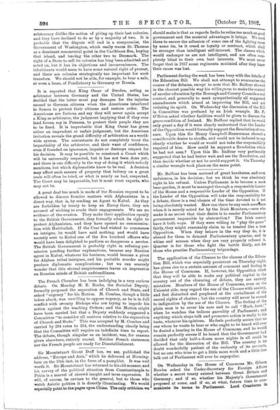It is reported that King Oscar of Sweden, acting as
arbitrator between Germany and the United States, has decided that the latter must pay damages for the injuries caused to German citizens when the Americans interfered in Samoa to protect their citizens and restore order. The Americans are furious, and say they will never again accept a King as arbitrator, the judgment implying that if they ever land forces, say in Panama, to protect their people they are to be fined. It is improbable that King Oscar has given either an imprudent or unfair judgment; but the American irritation reveals the grand difficulty of arbitration as a world- wide system. The contestants do not completely trust the impartiality of the arbitrator, and their want of confidence, even if founded on ignorance, impairs or destroys respect for his decision. It may be possible to construct a Court which will be universally respected, but it has not been done yet; and there is one difficulty in the way of doing it which nobody mentions, but which diplomatists know to be real. A decision may affect such masses of property that bribery on a great scale will often be tried, or what is nearly as bad, suspected. The Court may be impeccable, but it must trust experts, who may not be.










































 Previous page
Previous page